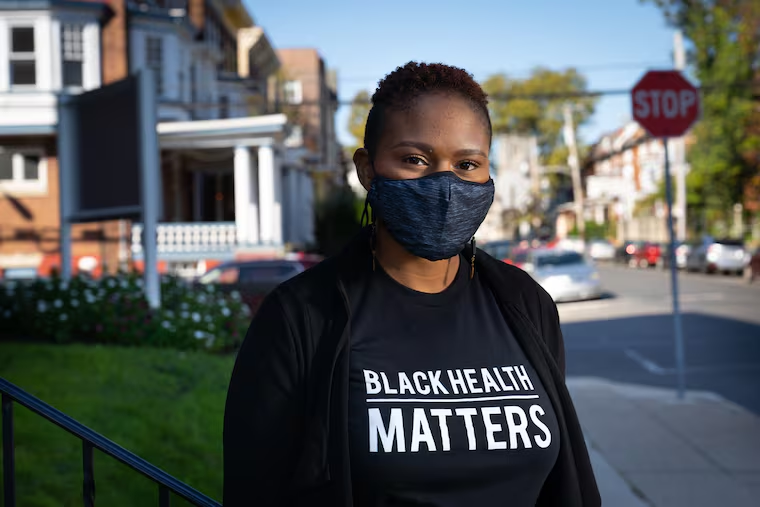New cases in Pa. nearing pandemic highs | Coronavirus Newsletter
Plus, psychologists explain why some people resist COVID-19 safety measures

TL;DR: New cases continue to increase across the region, with Pennsylvania over the weekend reporting its highest one-day total since April 11. Why are some people resisting COVID-19 safety measures? Psychologists say Americans may need to know someone who is sick or died in order to feel the risk, and an Inquirer analysis suggests that in much of the country, the typical person knows no one in either of those categories.
— Kelly O’Shea (@kelloshea, health@inquirer.com)
What you need to know:
💰 The Small Business Administration is offering total forgiveness to business owners who borrowed $50,000 or less through the administration’s emergency loan program — provided they file the right paperwork.
⚕ Thomas Jefferson University plans to cut 500 positions through attrition, freezing pay of top executives, and stopping retirement plan contributions for a year as the medical system struggles to stem losses.
📞 As coronavirus case counts surge, contact tracing is an important step to getting things under control in Philadelphia. But the effort continues to be hampered by people who don’t answer their phones.
🔒 In the New Jersey shore town of Margate, four iconic restaurants have been forced to close temporarily due to positive coronavirus cases.
📓 In Pennsylvania, K-12 schools aren’t required to inform families about COVID-19 cases among students and staff, resulting in mixed levels of notification.
🦠 President Donald Trump claimed that he is now “immune” to the coronavirus. Here’s what the science says.
📰 What’s going on in your county? We organized recent coverage of the coronavirus pandemic by local counties mentioned in the stories to make it easier for you to find the info you care about.
Local coronavirus cases
📈The coronavirus has swept across the Philadelphia region and cases continue to mount. The Inquirer and Spotlight PA are compiling geographic data on tests conducted, cases confirmed, and deaths caused by the virus. Track the spread here.
New cases continue to increase across the region, with Pennsylvania reporting 1,742 new COVID-19 cases on Saturday. That’s the highest one-day total since April 11, when 1,931 new cases were reported, and the third-highest one-day total dating back to the start of the pandemic. The commonwealth is now averaging 1,300 new cases a day over the past seven days, according to an Inquirer analysis, up 23% compared to just last week. In New Jersey, new cases are up 16.7% percent compared to last week’s average, and 110% compared to last month.
Seven months into the pandemic, it’s no secret that plenty of people still downplay the risks of COVID-19. Politics clearly feeds that mind-set, but a more fundamental reason for the uneven support of COVID-19 prevention measures may lie in simple math: Despite more than 200,000 deaths and 400,000 hospitalizations in the United States, an Inquirer analysis suggests that in much of the country, the typical person knows no one in either of those categories. That explanation may seem jarring — do we really need to know someone who is gravely ill in order to practice safe behavior? — but psychologists say it makes sense. Read more here.
Helpful resources
Symptoms of COVID-19, flu, common cold, and allergies can overlap. How to tell the difference.
If you’ve hit a COVID-19 wall, here are ways to cope.
The coronavirus is mainly transmitted through the air. Here’s how to tell if your ventilation is OK.
How does the virus affect your entire body?
Here’s what to know about traveling safely during the pandemic.
You got this: A safe space for jazz
For jazz in Philadelphia, this was a silent spring and summer. But now the tune at last seems to be changing, my colleague Frank Fitzpatrick reports. What’s fueling this re-emergence, performers and club owners said, are relaxed COVID-19 restrictions, new safety measures, an increasing reliance on technology and, above all, the creativity of the musicians themselves. Here’s how Chris' Jazz Café is stirring back to life.
🤗 Terrill Haigler, more widely known as Ya Fav Trashman on Instagram, hosted a food drive for frontline workers in Philadelphia.
👻 Boo at the Zoo is back — along with other fall outings for Philly families this week.
🕺 Center City’s Concourse Dance Bar reopens with an ice room — sans ball pit.
Have a social distancing tip or question to share? Let us know at health@inquirer.com and your input might be featured in a future edition of this newsletter.
What we’re paying attention to
The Washington Post chronicles one man’s journey from dismissing and denying the coronavirus to contracting and spreading COVID-19.
After two Black university leaders urged their campuses to join a COVID-19 vaccine trial, the backlash was swift, Stat reported. The episode illustrates the challenges to bolster lagging Black enrollment in clinical trials.
Brain fog is affecting thousands of COVID-19 survivors, impeding their ability to work and function in daily life, The New York Times writes.
Enjoy getting our journalism through email? You can also sign up for The Inquirer Morning Newsletter to get the latest news, features, investigations and more sent straight to your inbox each morning Sunday-Friday. Sign up here.